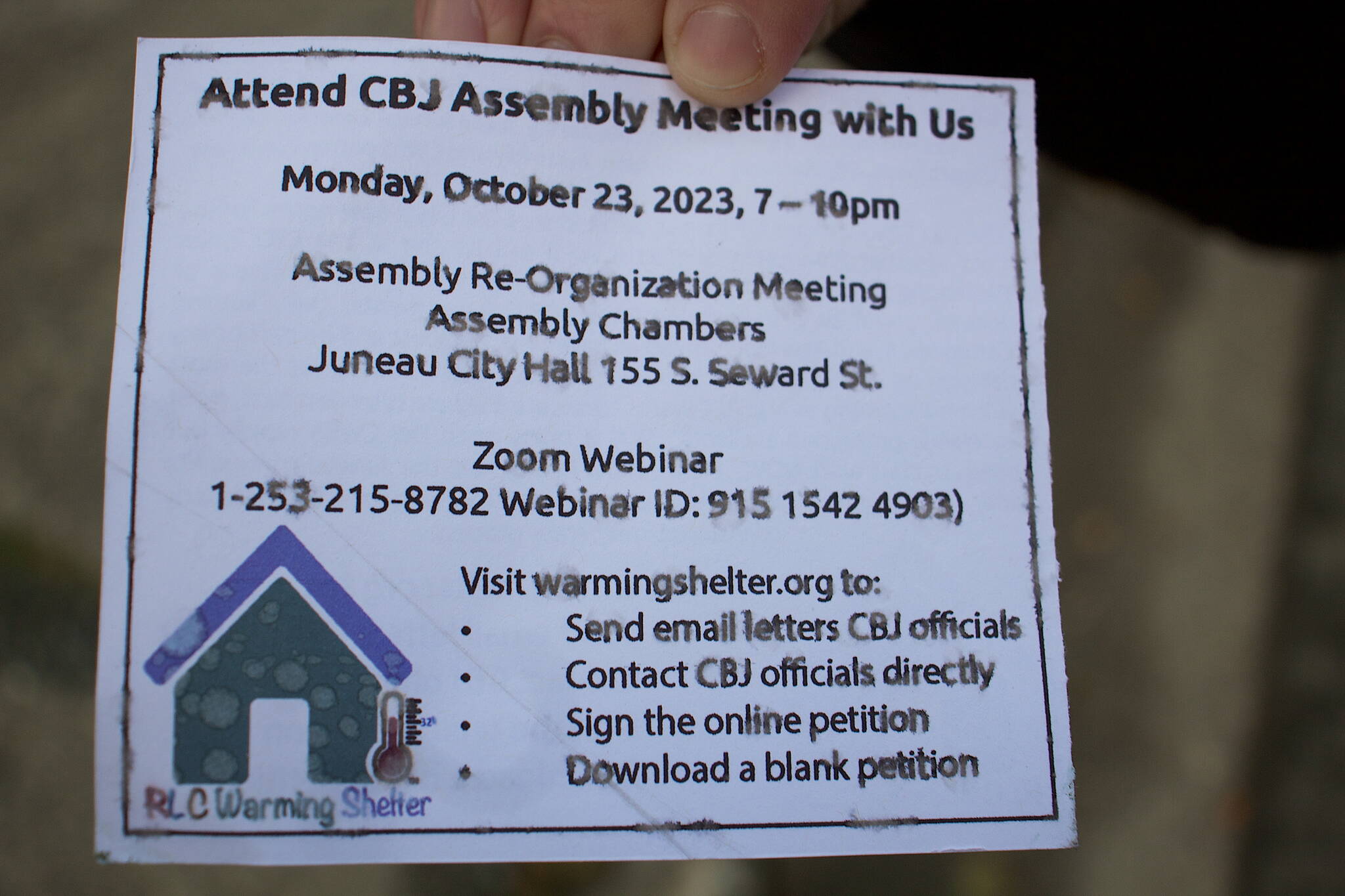A petition to keep a cold weather emergency shelter at Resurrection Lutheran Church this winter is being circulated by its leaders, who in letters to the public and Juneau’s city manager state the shelter scheduled to open Friday at a warehouse south of downtown has numerous shortcomings, and the decision was made without public input and the proper official process.
“Any decision on the CWES’s future should be made collectively, with input from various stakeholders,” an open letter by church leaders published at the church’s website Monday states. “By allowing RLC to operate the CWES for one more year, we can ensure a seamless transition and give our community the time it needs to have a voice in this decision-making process.”
[Winter warming shelter now likely to be at CBJ Ballot Processing Center, officials say]
The church operated the shelter the past two years, but the city began considering other options when the congregation voted in June and then again in September not to host the shelter. The congregation reversed its decision in a 25-24 vote in early October, but by then the city was already well into discussions with St. Vincent de Paul to operate a shelter, with the city-owned warehouse about a mile south of the Goldbelt Tram emerging as the designated location.
However, the Juneau Assembly needs to approve the use of the warehouse as the shelter, but city and SVDP leaders agreed to open it before that can occur due to sub-freezing temperatures expected this weekend. The Assembly is scheduled to give initial consideration to an ordinance authorizing the shelter at its next meeting Monday, but won’t be able to approve it until a subsequent meeting, with the next one currently scheduled Nov. 13.
In addition to the petition and open letter by church leaders, its pastor Karen Perkins detailed her concerns more explicitly in a letter dated Wednesday addressed to Juneau City Manager Katie Koester, which is also posted at the church’s website.
“We are quite troubled by the fact that this new plan involves a facility in a remote, unpopulated, non-residential area,” Perkins wrote. “This creates a significant barrier for CWES patrons who may not be able to access other necessary resources. While shuttles/busses to and from the CWES might provide some help, they will be of greatest utility to those who are already receiving services through existing programs.”
Such people are often not those most in need of emergency shelter as it’s intended to operate, Perkins added.
“In fact, the paucity of basic services and limited accessibility are completely contrary to national low-barrier shelter best-practices,” she wrote. “Together with the fact that the facility is a warehouse, the location and plans communicate to CWES patrons how other Juneau citizens feel about them. This correlates to poor outcomes and lengthier periods of homelessness.”
Koester, in an interview Friday, said she had not received the letter and was not aware of its contents. Deputy City Manager Robert Barr, the primary city official working on shelter options and the subsequent negotiations, said a contract to use the warehouse as the shelter has been signed “and we’ll be talking about it and bringing it before the Assembly on Monday at their meeting.”
“We’ve been engaged with pretty much every provider that wants to be engaged with on this particular topic,” he said. “We certainly support and always want to see as much public input as possible, and to all of our processes. Unfortunately, the timing of this one didn’t allow for a whole lot of public meetings because of the multiple (church) votes and lack of response to bidding that we got earlier in the process.”
Perkins, in an interview Friday, said her church could be ready to operate the shelter within a day, which should occur until the full public process — including getting input from people using the shelter — is complete, regardless of the steps the city and SVDP have taken to prepare the warehouse for shelter occupants, and the contract they signed.
“This is this is not intended to be mean,” she said. “It’s intended to say ‘Stop what you’re doing. You didn’t do this right. And you have to do it right. And you can’t skip doing it right just because you’ve already invested in it.’”
People involved with the church’s warming shelter are using their previous experience and research from “the latest best practices across the country” to address concerns raised such as behavior- and property-related incidents, according to the church’s letters. Perkins stated in her letter to Koester that “we provide extensive training and use multiple safety tools to minimize risk.”
“Despite the common belief, shelters do not pose a threat to schools, children, residents or businesses,” Perkins wrote. “We are deeply concerned that anyone from your office, as a city representative, has endorsed these unfounded fears.”
Perkins, in her interview, said that assertion is based on studies and data related to homelessness and emergency shelters, but they are not specific to Juneau. She said concerns raised by individual people can distort the overall reality of the situation.
“I think a lot of that anxiety comes from either anecdotes that cause fear…and so we think that’s the norm,” she said. “Or once we’ve had a particular experience that affects every every opinion we have about it moving forward.”
• Contact Mark Sabbatini at mark.sabbatini@juneauempire.com or (907) 957-2306.

